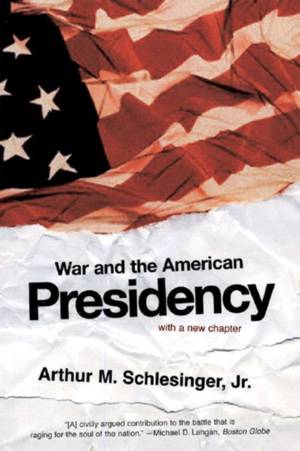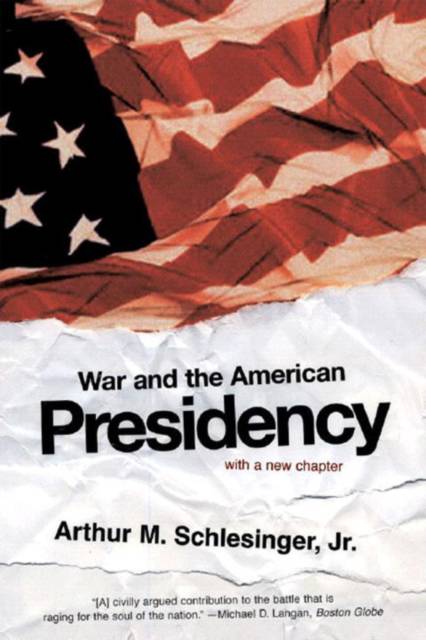
Bedankt voor het vertrouwen het afgelopen jaar! Om jou te bedanken bieden we GRATIS verzending (in België) aan op alles gedurende de hele maand januari.
- Afhalen na 1 uur in een winkel met voorraad
- In januari gratis thuislevering in België
- Ruim aanbod met 7 miljoen producten
Bedankt voor het vertrouwen het afgelopen jaar! Om jou te bedanken bieden we GRATIS verzending (in België) aan op alles gedurende de hele maand januari.
- Afhalen na 1 uur in een winkel met voorraad
- In januari gratis thuislevering in België
- Ruim aanbod met 7 miljoen producten
Zoeken
Omschrijving
In a book that brings a magisterial command of history to the most urgent of contemporary questions, two-time Pulitzer Prize-winning historian Arthur M. Schlesinger, Jr., explores the war in Iraq, the presidency, and the future of democracy. Describing unilateralism as "the oldest doctrine in American history," Schlesinger nevertheless warns of the dangers posed by the fatal turn in U.S. policy from deterrence and containment to preventive war. He writes powerfully about George W. Bush's expansion of presidential power, reminding us nevertheless of our country's distinguished legacy of patriotism through dissent in wartime. And in a new chapter written especially for the paperback edition, he examines the historical role of religion in American politics as a background for an assessment of Bush's faith-based presidency.
Specificaties
Betrokkenen
- Auteur(s):
- Uitgeverij:
Inhoud
- Aantal bladzijden:
- 206
- Taal:
- Engels
Eigenschappen
- Productcode (EAN):
- 9780393327694
- Verschijningsdatum:
- 17/10/2005
- Uitvoering:
- Paperback
- Formaat:
- Trade paperback (VS)
- Afmetingen:
- 137 mm x 206 mm
- Gewicht:
- 249 g

Alleen bij Standaard Boekhandel
+ 59 punten op je klantenkaart van Standaard Boekhandel
Beoordelingen
We publiceren alleen reviews die voldoen aan de voorwaarden voor reviews. Bekijk onze voorwaarden voor reviews.









